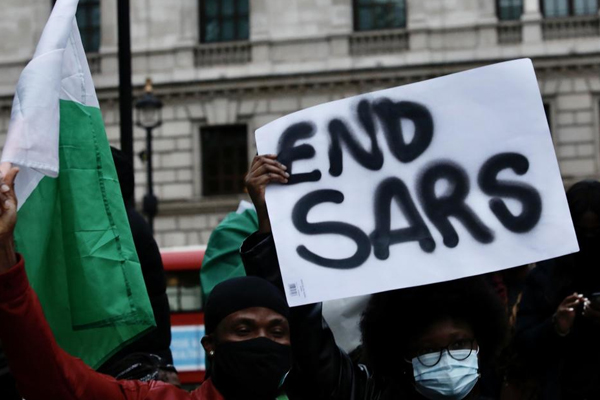Nationwide Crisis & the Nigerian Macro-Economy
Before the pandemic, Nigeria’s real GDP growth was projected to rise to 2.9% in 2020 and 3.3% in 2021, depending on the implementation plan of the Economic Recovery Growth Plan. The COVID-19 pandemic had a crippling effect on the economy that has led to a rise in inflation from 12.56% in July to 13.71% in September, up from 12.82% the previous month. According to the National Bureau of Statistics (NBS), inflation is projected to hit 20% by 2021, when the effects of petrol and electricity prices are accounted for, prompting the federal government to introduce and prepare for the implementation of the Nigerian Economic Sustainability Plan to respond to the challenges posed by the pandemic. Food prices have increased due to insecurity in certain parts of the country, flooding, and trade restrictions with other African countries due to land border closures.
According to the NBS, Nigeria’s Gross Domestic Product (GDP) in real terms declined by 6.10% (year-on-year) in Q2 2020, ending the 3-year trend of low but favorable actual growth rates recorded since the 2016/17 recession. This decline is due to the lack of domestic and international economic activities resulting from lockdowns and movement restrictions in efforts to control the COVID-19 pandemic. Nonetheless, Nigeria has many opportunities to transform its economy, particularly in agro-processing, promoting agro-industrial development and employment. As the National Bureau of Statistics (NBS) report had put Nigeria’s unemployment rate for Q2 2020 at 27%, revealing the degree of fragility of the economy due to slow economic growth and low level of industrialization. The federal government will need to offer more agric loans and introduce several agric-mechanization schemes to support these goals and bolster economic growth, but long-standing bottlenecks remain.
President Buhari unveiled an N13.1 trillion naira 2021 budget to lawmakers on the 8th of October, up 21% from the 2020 budget. The spending plan rests on a projected 3.0% growth rate and a fiscal deficit of 3.6% of GDP. On the 29th of October, 2020, Brent’s price, the benchmark for Nigeria’s crude oil, fell to $37/barrel due to the second wave of COVID-19 in the United States and Europe. Low oil prices place additional pressures on the country’s financial stability, directly affecting the budget’s spending plan.
Analysis
Several interest groups call for better policy reforms, governance, and restructuring of the system. The vision would be that these actions would improve every citizen’s living standard and inadvertently bolster economic growth. At the moment, insecurity remains high in several parts of Nigeria, which could deter foreign investors, affect domestic growth, and ultimately dampen prospects for economic growth. High unemployment will continue to create social tensions among the youths, leading to the need for rising public debt and associated funding costs, posing more fiscal risks.
Due to the impact of the nationwide crisis on the Nigerian economy, the International Monetary Fund (IMF) has taken the first step to review Nigeria’s growth projection. It has urged the Federal government to look closely into these risks as they underscore the need for speedy structural reforms to promote economic diversification and industrialization.


